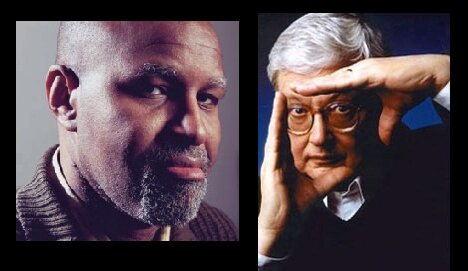
comments on :
Journalistic standards have changed so drastically that, when I took the podium at the film circle’s dinner and quoted Pauline Kael’s 1974 alarm, “Criticism is all that stands between the public and advertising,” the gala’s audience responded with an audible hush—not applause.
Over recent years, film journalism has—perhaps unconsciously—been considered a part of the film industry and expected to be a partner in Hollywood’s commercial system. Look at the increased prevalence of on-television reviewing dedicated to dispensing consumer advice, and of magazine and newspaper features linked only to current releases, or to the Oscar campaign, as if Hollywood’s business was everybody’s business. Critics are no longer respected as individual thinkers, only as adjuncts to advertising. We are not. And we should not be. Criticism needs to be reassessed with this clear understanding: We judge movies because we know movies, and our knowledge is based on learning and experience.
“Truth is the first casualty of war,” runs an old axiom of journalism. In the current war between print and electronic media, in which the Internet has given way to Babel-like chaos, the critical profession has been led toward self-doubt. Individual critics worry about their job security while editors and publishers, afraid of losing advertisers and customers, subject their readers to hype, gossip, and reformulated press releases—but not criticism. Besieged by fear, critics become the victim of commercial design—a conceit whereby the market predetermines content. Journalism illogically becomes oriented to youth, who no longer read.
Commerce, based on fashion and seeming novelty, always prioritizes the idea of newness as a way of favoring the next product and flattering the innocence of eager consumers who, reliably, lack the proverbial skepticism. (“Let the buyer be gullible.”) In this war between traditional journalistic standards and the new acquiescence, the first casualty is expertise.
By offering an alternative deluge of fans’ notes, angry sniping, half-baked impressions, and clubhouse amateurism, the Internet’s free-for-all has helped to further derange the concept of film criticism performed by writers who have studied cinema as well as related forms of history, science, and philosophy. This also differs from the venerable concept of the “gentleman amateur” whose gracious enthusiasms for art forms he himself didn’t practice expressed a valuable civility and sophistication, a means of social uplift. Internet criticism has, instead, unleashed a torrent of deceptive knowledge—a form of idiot savantry—usually based in the unquantifiable “love of movies” (thus corrupting the French academic’s notion of cinephilia).
He continues by deriding the blogosphere:
This is the source of the witty riposte or sarcastic put-down’s being considered the acme of critical language. The Algonquin Round Table’s legacy of high-caliber critical exchange has turned into the viral graffiti on aggregate websites such as Rotten Tomatoes that corral numerous reviews. These sites offer consensus as a substitute for assessment. Rotten Tomatoes readers then post (surprisingly vicious, often bullying) sniper responses to the reviews. These mostly juvenile remarks further shortcut the critical process by jumping straight to the so-called witticism. This isn’t erudition; as film critic Molly Haskell recently observed, “The Internet is democracy’s revenge on democracy.”
Yikes. :
[Pauline] Kael’s cutting remark cuts to the root of criticism’s problem today. Ebert’s way of talking about movies as disconnected from social and moral issues, simply as entertainment, seemed to normalize film discourse—you didn’t have to strive toward it, any Average Joe American could do it. But criticism actually dumbed down. Ebert also made his method a road to celebrity—which destroyed any possibility for a heroic era of film criticism.
At the Movies helped criticism become a way to be famous in the age of TV and exploding media, a dilemma that writer George W. S. Trow distilled in his apercu “The Aesthetic of the Hit”: “To the person growing up in the power of demography, it was clear that history had to do not with the powerful actions of certain men but with the processes of choice and preference.” It was Ebert’s career choice and preference to reduce film discussion to the fumbling of thumbs, pointing out gaffes or withholding “spoilers”—as if a viewer needed only to like or dislike a movie, according to an arbitrary set of specious rules, trends and habits. Not thought. Not feeling. Not experience. Not education. Just reviewing movies the way boys argued about a baseball game.
Don’t misconstrue this as an attack on the still-convalescent Ebert. I wish him nothing but health. But I am trying to clarify where film criticism went bad. Despite Ebert’s recent celebration in both Time magazine and The New York Times as “a great critic,” neither encomium could credit him with a single critical idea, notable literary style or cultural contribution. Each paean resorted to personal, logrolling appreciations. A.O. Scott hit bottom when he corroborated Ebert’s advice, “When writing you should avoid cliché, but on television you should embrace it.” That kind of thinking made Scott’s TV appearances a zero.
While White regularly gets pegged as an intelligent troll, my personal take is that he usually hits the critical nail on the head, even if he comes across as disproportionately strident. On the other hand, his rage is perfectly understandable when you consider that Pauline Kael and Andrew Sarris are allowed to fall into the same categories as most “critics” today.
In other news, my very smart and artistically talented friend, Gene Tanta, about…well, it looks like everything so far.

{ 1 comment… read it below or add one }
No, movie critics don’t matter. They’re just movies. Not all of them can be perceived as art.